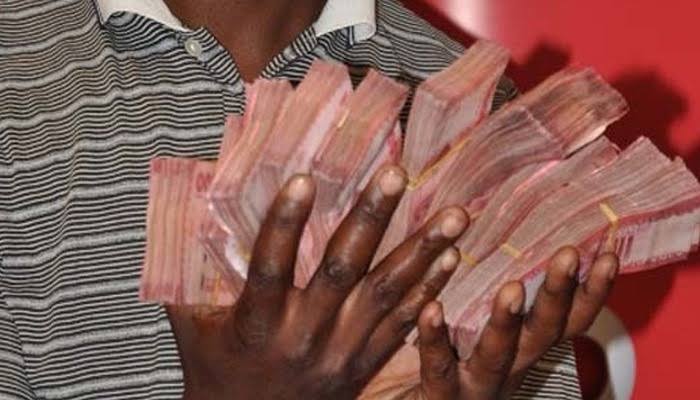A CHAT FROM LONDON : Christmas fever has set in, and it’s there for all to see
What you need to know:
- Number one: more lights and decorations. Yellow, blue and white shining bulbs dazzle everywhere. On street corners, inside government and commercial buildings. Shops are the most obvious because here money will be made.
- You observe the colours, words, announcements and promises of wonderful things of all kinds.
Christmas fever is already rising and soaring here. Even if you do not want to notice you will be made aware; it is happening.
Number one: more lights and decorations. Yellow, blue and white shining bulbs dazzle everywhere. On street corners, inside government and commercial buildings. Shops are the most obvious because here money will be made.
You observe the colours, words, announcements and promises of wonderful things of all kinds.
Then you see citizens carrying tree branches and stumps. Trees wrapped in transparent nylon papers.
Christmas trees are from the fir family. In Kilimanjaro where, traditionally, Christmas is a huge event (due to the European influence over a hundred years ago), firs are called meresi in Kichagga – or merenzi in Kiswahili. They have a distinct scent. They cost money. And money means Christmas. Christmas is money.
I was speaking to a London Internet trader the other day and he kept saying, “This is the time to make money. Money for your family. Money to buy baksheesh. Money for Christmas.”
You go to shops and the cellophane paper, used to wrap up presents is everywhere; different qualities, size, shape and fee.
You buy a gift, have it enveloped and wrapped. Must be truly presentable. Later you feel elated watching a beloved one opening up a well encased gift. When eyes pop out with a “Wow! Thank you so much, I needed this!”, or “I love this! Thank you!”
The tradition of giving gifts, here, differs from East Africa where folks never demand the exact, particular, definite, item of choice.
“What gift should I get you?” You ask.
“ANYTHING,” we answer.
In Europe, kids and adults alike give hints. This is a society where material things are abundant. Therefore, you cannot just “buy me anything.” Of course, children might purchase socks or a tie for their fathers. Nevertheless, at least, they need to know his preferred colours, taste and so on...
Worse for females. If it is clear that an aunt is fond of a certain perfume, bangles, shawl or shoes, nieces and nephews must do a bit of research. You don’t just give anything. “Anything”, is too vague in this rich world. Specifics is the norm.
Many years ago, before the Internet revolution kicked in, we had to buy and post-Christmas and seasonal greetings cards. Nowadays, you still find those items yes. But deep down you know people will be texting greetings via Facebook, WhatsApp and other social media kitchens. Clicking buttons has substituted pens, paper and scrawling.
Having said all the above, it is good to remember that this is factually, a cultural issue.
I only learnt a few years ago that Jesus Christ was not actually born during this time. His birth was at a different month and day—but to symbolise the date, European pagans celebrated that crucial period around December, respecting local traditions e.g. winter feasts, citing of the moon, etc. Pagans were eventually replaced by Christians and to this day, a pagan is regarded as a bad thing. In Kiswahili wapagani is as bad as kaffirs for Muslims. Non-believers.
Jesus Christ became the redeemer and symbol for Christmas and therefore Christianity. This is just beating around the surface. The actual Christmas is a feasting time. Celebrate, pray, families and offering sacrifices.
What children and families in these parts of the world do and love is giving and receiving gifts.
Consequently, this is buying and spending. Money.
Then there are those who do not have anyone. Some immigrants from troubled spots of the world. Here alone. In a hostel. Or foreign students. The homeless, displaced and jobless. People in torment. Bombings in Aleppo, as we speak. Syria. Fear, sadness, uncertainty and deaths of thousands.
When I was growing up in Kilimanjaro five decades ago, Christmas signified two issues.
Dressing up. Leaving early for the Christmas mass. In church you felt part of the group of other worshipers. You checked each other up as you sang those sacred hymns and chorused Hallelujah. Silent Night, Holy Night. As a child it felt really special. Afterwards it was issue number two. Trekking home where mothers and sisters prepared the huge, succulent meals. Usually cooked bananas and lots of meat. Machalari and ndafu. Adults sipped mbege in special gourds called katas. Of course, we kids would be given a bit of the same to enjoy. I never considered mbege alcohol; it was just part of food.
This culture is akin to the Latin people. French and Italians. They relish food with wine. Getting drunk is not the aim. Never the purpose.
Yes, Christmas is here.
By the gate.
We can start sniffing it.
Near the door.
Less than ten days to go...
Hodi, karibu.




